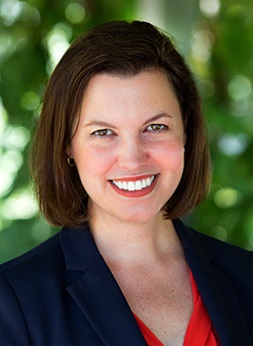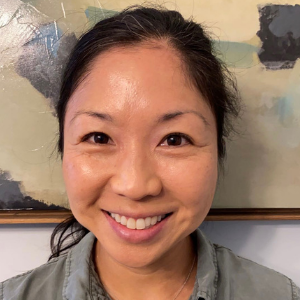Disability Equity Collaborative (DEC)
The Disability Equity Collaborative (DEC) supports individuals, healthcare organizations, policy makers, advocates, researchers, and professional organizations working to address the health disparities experienced by patients with all types of disabilities.
In 2018, Dr. Megan Morris and her colleagues at the University of Colorado Anschutz created DEC to address the significant issues of unequal access to healthcare for people with disabilities. In 2019, DEC was formalized with an Engagement Award from the Patient-Centered Outcomes Research Institute (PCORI).
Although the Americans with Disabilities Act (ADA) has been in place for more than three decades, the lack of enforcement mechanisms has resulted in uneven, piecemeal, and ineffective implementation of the law in healthcare settings. This has been brought to light even further by the COVID-19 pandemic and the growing movement to achieve diversity, equity, and inclusion in every sphere of our society, including healthcare.
Beyond enforcing the law, we need a shift in attitudes and understanding to achieve true healthcare equity for people with disabilities. DEC and its partners are committed to working with practitioners, health care systems, hospitals, researchers, and policy makers to develop meaningful, practical solutions that ensure access to equitable, high quality care for all people.
In fall of 2020, DEC convened a national Summit to collaboratively identify priorities and actionable steps. Over 80 people representing diverse stakeholders participated across the two days of the Summit. The findings from this meeting directly informed the growth and mission of DEC. Materials and findings from the Summit can be found here.

Megan Morris, PhD, MPH, CCC-SLP
Director and Founder of DEC
Associate Professor
Dr. Morris is the Founder and Director of DEC. She is an Associate Professor in the Division of General Internal Medicine and a faculty member within the Adult and Child Consortium for Health Outcomes Research and Delivery Science (ACCORDS) at the University of Colorado Anschutz Medical Campus. Her research focuses on understanding, identifying and addressing disparities in care delivered to patients with disabilities. Dr. Morris’s passion for equitable care for persons with disabilities stems from her personal experience as a family member of a person with multiple disabilities. She is also a licensed speech-language pathologist with almost a decade of clinical experience working with persons who use assistive technology to communicate.
Link to Profile
Kori Eberle, BA
Ms. Eberle is the Program Director of DEC. She is a Professional Research Assistant at the University of Colorado interested in improving access to and quality of care delivered to people with disabilities. She is currently pursuing her Masters degree in Public Health with a focus on health systems, management, and policy. She has extensive experience working with children with disabilities and their families. Ms. Eberle has a diverse background including program management, work with international non-profit organizations, and therapy and education with children with autism.

155d08e8-d84f-4188-a7df-d0fc7bd244f7.png?sfvrsn=ff74a5bb_1)
Alicia Wong, MD, MPH
Physician Denver Health
Dr. Alicia Wong is a physician at the University of Colorado and Denver Health. She focuses on health equity research and primary care for people with disabilities. Dr. Wong received BA in sociology from Bowdoin College and her MD/MPH from Boston University. She completed her residency at University of Colorado Family Medicine Residency. Dr. Wong has been involved in disability advocacy for over ten years, and previously served on the board of directors of the Disability Policy Consortium of Massachusetts.
Jennifer Y. Oshita, MS, CCC-SLP
Jen Oshita is a health services researcher and speech and language pathologist. She is a Post-doctoral fellow at the University of Colorado, in the Center for Bioethics and Humanities. She examines the healthcare access barriers and disparate health outcomes experienced by adults with communication and cognitive disabilities. She integrates social drivers of health and an implementation science lens into her work, using both qualitative and quantitative methods to answer her research questions.
